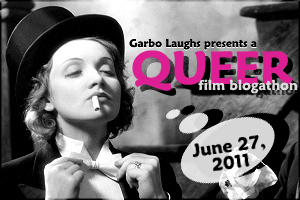I don't normally write obituaries on my blog, but the news today of Ray Harryhausen's passing is something I can't let pass without writing, I dunno, something. Harryhausen is one of those essential element without which my love of movies would not be what it is. I suspect there are a lot of people like me.
My first encounter with Ray Harryhausen came during a family trip to Boston in 1973. We spent a lot of time visiting relatives and seeing the sights. My dad took my brothers and I to a Red Sox game at Fenway Park. This was during the Carl Yastremski years. The Red Sox lost to Cleveland 4-3 in a game that had a forty-five minute rain delay, and I'm not sure why I even remember that, because I also remember being bored by the whole thing. My dad was a die-hard Red Sox fan, though, and he wanted to instill that into his children. He died a month and a half before the Sox finally won the World Series. I resented them for that. I haven't followed baseball ever since.
The next day, we went to a movie with one of my cousins. It was a dreary day. The rain that had been intermittent at Fenway turned into a steady murk. I seem to remember that the original plan had been to drive down to a beach on Cape Cod, but the rain put paid to that, so we went instead to a small proto-multiplex in Marshfield that was showing The Golden Voyage of Sinbad. I don't remember how my brothers reacted to it, but I was enchanted. Harryhausen and his "Dynamation" instantly became a signifying imprimatur for movie fantasies. I knew that there would be magic where ever that sigil was to be found.
I don't know that I was particularly interested in fantasy filmmaking when I was that young. I'd seen a few Godzilla movies on TV, and Disney, of course, but Harryhausen changed that. By the mid-seventies, I was a hardcore monster kid. My brothers and I eventually saw all of the Sinbad movies in the theater (the movie theater on Petersen Air Force Base in Colorado staged a kid's matinee of "The 7th Voyage of Sinbad" sometime in the mid-70s and we saw Sinbad and the Eye of the Tiger on its first release a few years later). Best of all, my school library had a book about Ray Harryhausen, so I had a kind of master list of his movies. I pored over TV Guide whenever it arrived in the mail looking for Harryhausen's films. They almost always played them on Saturday afternoon, though sometimes they were late on weekends. The First Men in the Moon was for me one of those late night viewings that's half memory, half dream. I was disappointed that our family's Super 8 movie camera did not have a single frame exposure rate, otherwise I'm sure that I would have made my own stop motion puppets and tried to make movies. Eventually, I tracked down all of the films, even before home video made this poisonously easy. The last pieces fell into place in the first part of the 2000s when Turner Classic Movies ran a Harryhausen retrospective and showed some his short films.
Harryhausen also introduced me to Ray Bradbury. Bradbury figured prominently in that book I found at the library, and Bradbury himself could be found at the library, too. Years later, I met both Harryhausen and Bradbury at a science fiction convention in St. Louis (they called it the Ray Squared Show). I was almost too thunderstruck to say anything to them, but they were patient with me. They were patient with everyone.
Harryhausen retired after making Clash of the Titans. I remember being disappointed by Clash when I saw it in the theater, but by then, I had been dazzled by Harryhausen's descendents. Clash of the Titans came out in the summer of 1981. That same year saw films as diverse as Raiders of the Lost Ark, The Howling and An American Werewolf in London, Superman II, and Dragonslayer up the ante on what was possible in fantasy filmmaking. Next to these films--particularly Dragonslayer--Harryhausen's effects seemed quaint, but these movies wouldn't exist without Harryhausen's influence. Given that fantasy filmmaking has turned into an unstoppable force and given that special effects have proliferated in films of all kinds (not just fantasies), it's fair to say that Harryhausen himself was a titan, whose shadow grows longer every year. And Clash holds up better than I expected it would. There's nothing like an inferior remake to highlight one's good qualities. It's weird, too, because none of Harryhausen's other films is actually particularly good, either. Some are not bad. Others are stiff. Jason and the Argonauts is probably the only true classic Harryhausen ever made. As indifferent as they are, though, they are remembered because of Harryhausen. The effects sequences in Harryhausen's films are like production numbers in musicals. They're the reason the audience is there and when they're on screen, they're magic, but there's a lot of filler in between them.
In any event, when the news of Harryhausen's passing came across my news feed this morning, it was like someone had punched me. The world is moving on. The things I loved as a child are passing from this world. I'm getting old. That's what death does: it reminds us that we are getting older. Time waits for no one. So leave a mark. Ray Harryhausen left his mark. It will endure.

















